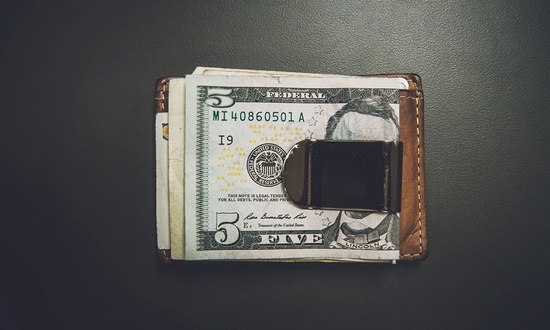The following guidelines, from my book Money, Possessions, and Eternity, are designed to help you exercise self-control in spending, become a better steward of God’s resources, and free funds to use for Kingdom purposes:
1. Examine every purchase in light of its ministry potential.
We must weigh the value of every item we buy against what the same money could have done if used another way—for instance, to feed the hungry or to evangelize the lost. I don’t say this to induce a guilt trip but to indicate the obvious—whenever money is used one way, it prevents it from being used another. None of us should impose our personal standards on others, nor on the standards of God. We should ask God to direct us when it comes to handling His money.
2. Pray before you spend.
When something’s a legitimate need, God will provide. How often do we take matters into our own hands and spend impulsively before asking God to furnish it for us? Often we either buy what we want or forgo what we want when there’s a third alternative: asking God to provide it for us. If He doesn’t provide it, fine—He knows best.
Setting a waiting period gives God the opportunity to provide what we want, to provide something better, or to show us that we don’t need it and how to use the money differently.
3. Realize that nothing is a good deal if you can’t afford it.
Paying $250,000 for a house that is worth $300,000 sounds like an excellent deal. Paying $80 for a pair of barely used skis that cost $400 new seems like a great deal. But if we can’t afford them, it simply doesn’t matter. It’s always a bad choice to spend money on a “good deal” we can’t afford.
4. Recognize that God isn’t behind every good deal.
Suppose we can afford it. Does that mean we should buy it? Self-control often means turning down good deals on things we really want because God may have better plans for His money.
5. Understand the difference between spending money and saving it.
Saving is setting aside money for a future purpose; it stays in our wallet or in the bank. It can be used for other purposes, including our needs or the needs of others. Money that’s spent leaves our hands and is no longer at our disposal. If we buy an $80 sweater on sale for $30, we’ve spent $30. If we think we’ve just saved $50, we simply don’t understand the concept of saving!
6. Look at the long-term cost, not just the short-term expense.
If something breaks, we pay to get it repaired. If we buy a new car, we fret about dents and buy insurance to fix them. Count the cost in advance. Everything ends up being more expensive than it first appears.
7. Understand and resist the manipulative nature of advertising.
Advertising is seductive and manipulative. It programs us. We must consciously reject its claims and counter them with God’s Word, which tells us what we really do and don’t need. We should withdraw ourselves from advertising that fosters greed or discontent. That may mean less television, less flipping through sales catalogs and newspaper ads, and less aimless wandering through shopping malls.
8. Learn to walk away from things you want but don’t need.
Once I received a large, unexpected check. After giving a portion to the Lord, I still had $2,000 left. Before long, I was out looking at something I’d wanted but had never been able to justify. The price tag read $1,995. But in my heart there wasn’t peace when I considered what that money could do for God’s Kingdom. Finally, I decided I shouldn’t make the purchase. When I turned and walked away, something unexpected happened. I was suddenly filled with a deep sense of relief and joy. To be free of it was the first blessing; to know the eternal difference that amount would make was the second blessing.
9. Realize that little things add up.
One dollar here and ten dollars over there; a hamburger here and mocha there; movie rentals and rounds of golf. These things may seem inconsequential, but they can add up to hundreds of dollars per month and thousands per year that could be used for Kingdom purposes. Until we fix some of our spending habits, we’ll never be able to divert the flow of money for higher purposes.
10. Set up a budget and live by it.
Two practical steps can greatly help us get a grip on our spending: recording expenditures and making a budget. These steps will help us detect problem areas by clarifying our spending habits. This will improve our mental and marital health because financial disorder is one of the leading causes of personal and familial stress.
Living on a budget will free up lots of money. When I was a pastor, I met with families who followed a budget and did fine on a very meager income. I met with others who made much more and were always in financial crisis.
It’s not how much money we make, but how we handle it that matters. And it all begins by recognizing the money we’re handling is not our own. It belongs to another, before whom we will one day stand, and from whom the best words we could ever hear are these: “Well done my good and faithful servant. Enter into your Master’s joy.”
For more, see our other resources on money and giving, as well as Randy's related books.




